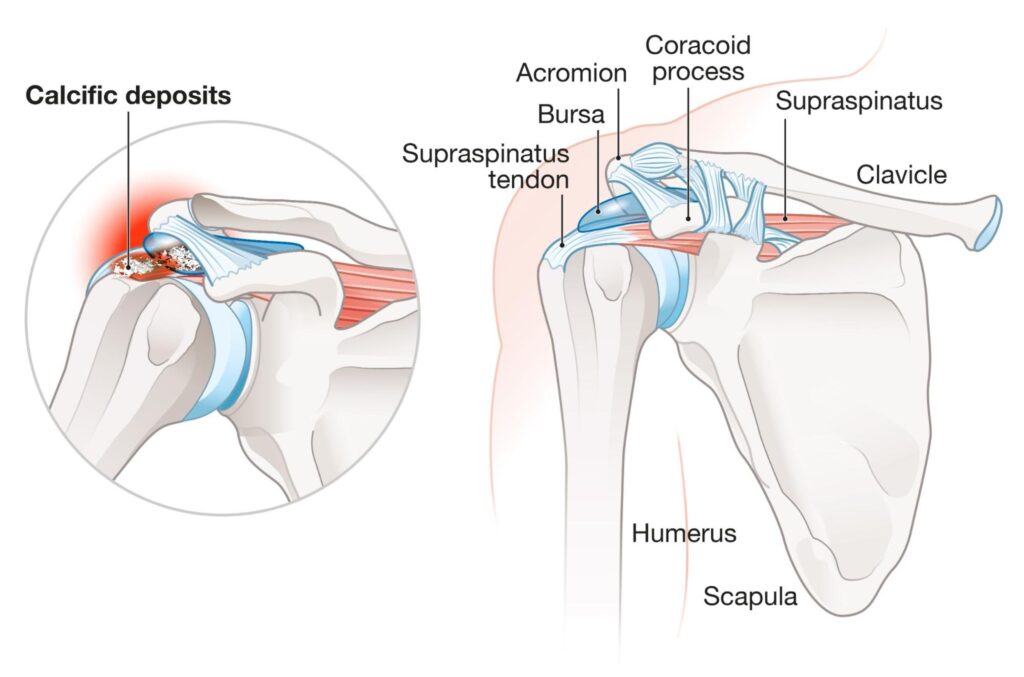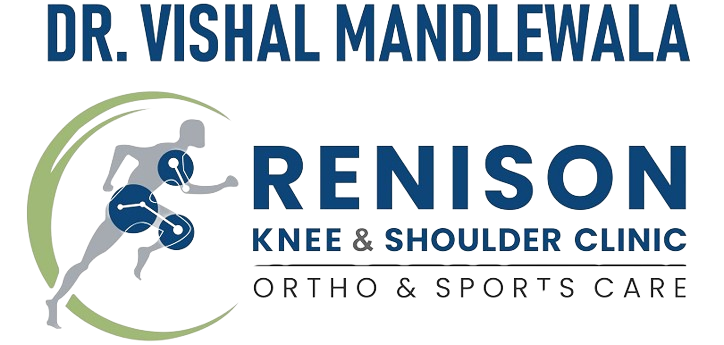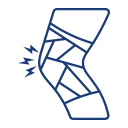What is Calcific Tendinitis?
Calcific tendinitis of Shoulder happens when calcium builds up in a supraspinatous tendon, which is a tough tissue that connects muscle to bone. These calcium deposits can cause pain and make it hard to move the affected joint.

What are the Causes of Calcific Tendinitis of shoulder?
We’re not entirely sure what causes calcific tendinitis, but things like doing the same motion over and over again, injuring the tendon, poor blood flow to the tendon, or certain health problems might play a role.
How Common is Calcific Tendinitis?
Calcific tendinitis is pretty common, especially in people between 30 and 50 years old. Both men and women can get it, but it seems to happen more often in women.
Who is Affected by Calcific Tendinitis?
Anyone can get calcific tendinitis, but some things can increase your chances, like:
✓ AGE: Being between 30 and 60 years old, More commonin women than in men.
✓ Doing repetitive overhead movementsor activities in gymming, sports like badminton, volleyball, tennis, swimming.
✓ diabetes or problems with your thyroid gland.
✓ Overweight
✓ History of shoulder injury.
What are the Symptoms of Calcific Tendinitis of Shoulder?
The symptoms can vary, but common ones include:
✓ Pain and tenderness in front of shoulder, which can get worse when you move it or touch it.
✓ Stiffness and trouble moving the joint normally.
✓ Swelling and redness around the tendon.
✓ Difficulty doing daily tasks or activities like sports or exercise.
How is Shoulder Calcific Tendinitis Diagnosed?
To figure out if you have calcific tendinitis, Dr. Vishal Mandlewala at Renison Knee and Shoulder Clinic will check you out, ask about your health history, and might do some tests like X-rays, ultrasound, or MRI scans.
What are Treatment Options for Calcific Tendinitis?
The goal of treatment is to ease the pain, get rid of the calcium deposits, and help the tendon work better again. Treatment might include:
✓ REST: Taking it easy and avoiding things that make it hurt.
✓ Using pain meds or anti-inflammatory drugs to ease the pain and swelling.
✓ If diagnosed early Immobilize for 3 weeks followed by physiotherapy protocol of Renison Knee and Shoulder Clinic by Dr. Vishal Mandlewala
✓ Getting shot of corticosteroids Injection to reduce swelling and pain.
✓ In severe cases, Arthroscopy surgery might be needed to remove the deposits and fix the tendon.
Take Home Message:
When managing calcific tendinitis, it’s essential to have guidance and treatment options tailored to you. Dr. Vishal Mandlewala at Renison Knee and Shoulder Clinic can provide personalized care to help you effectively manage your condition.












